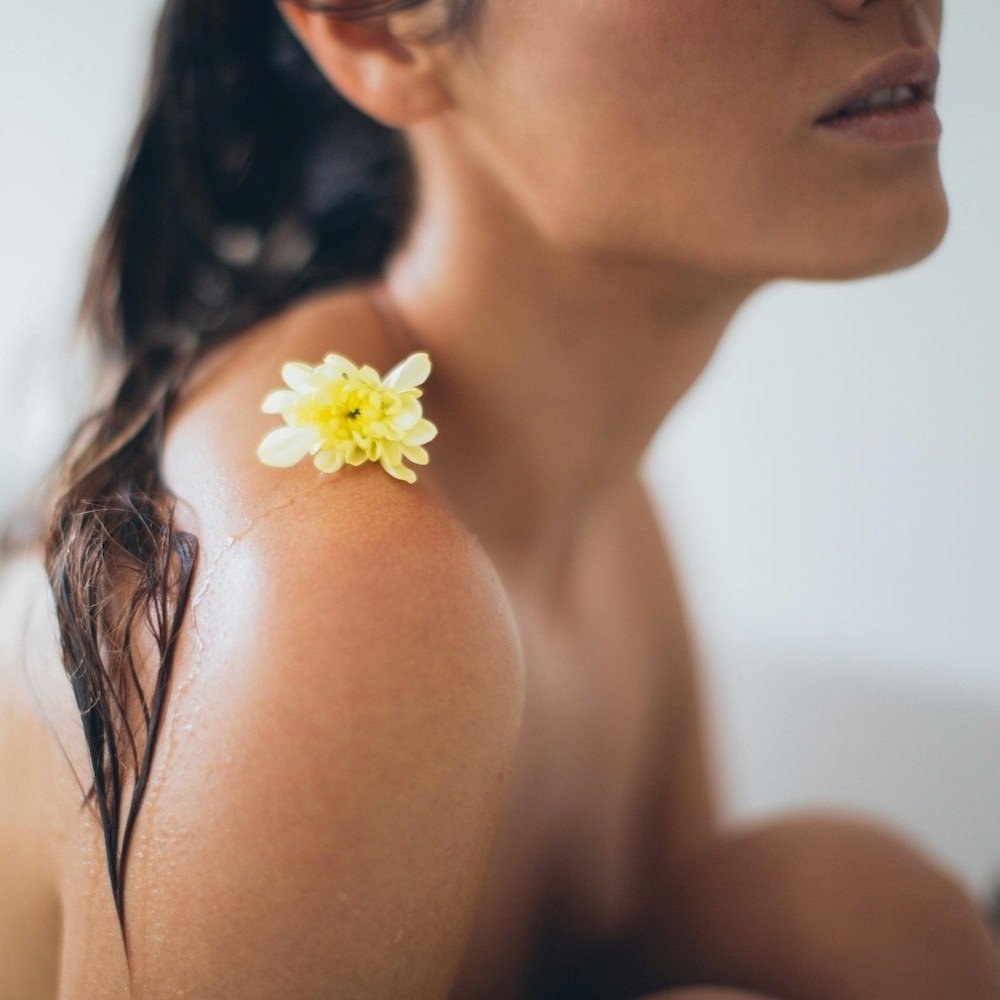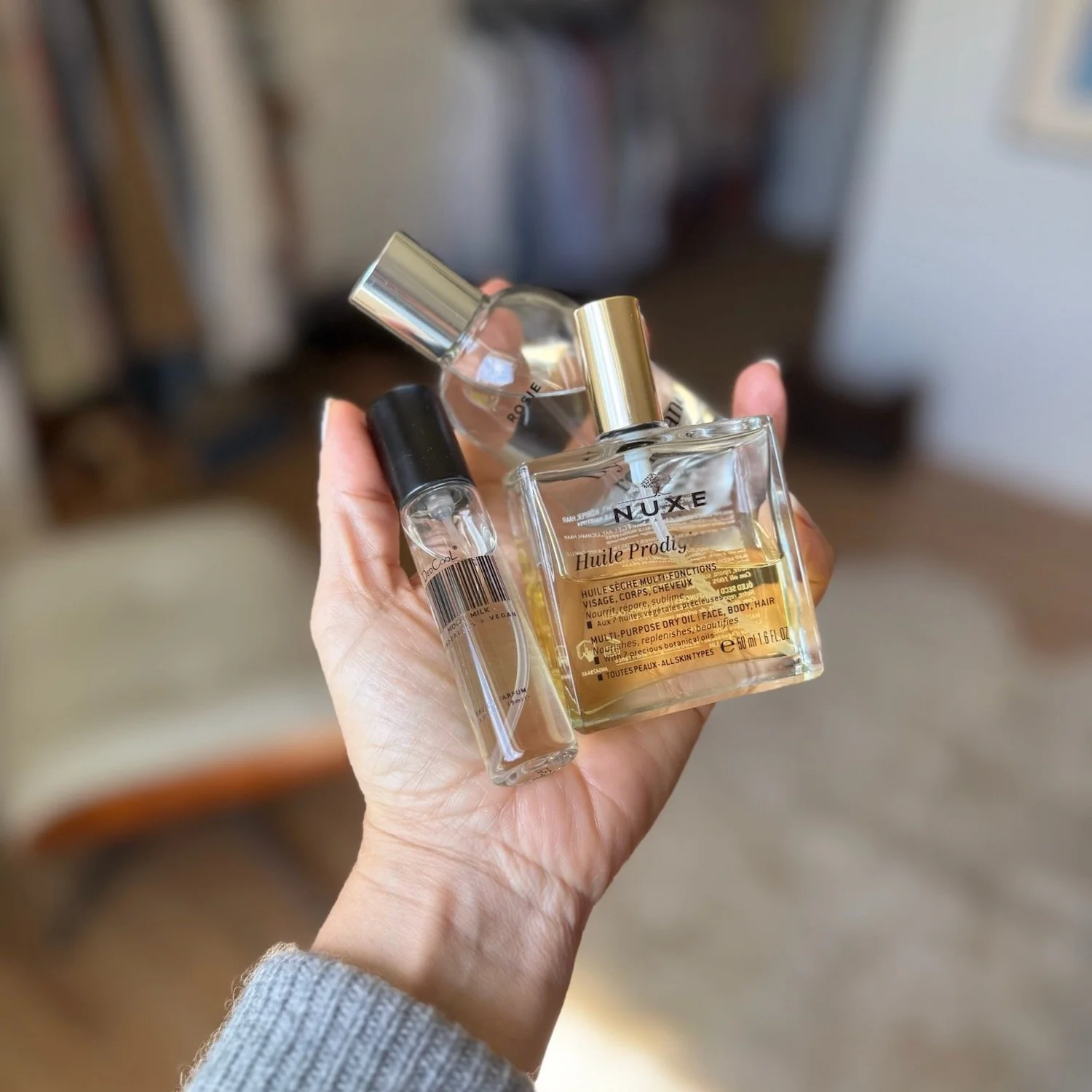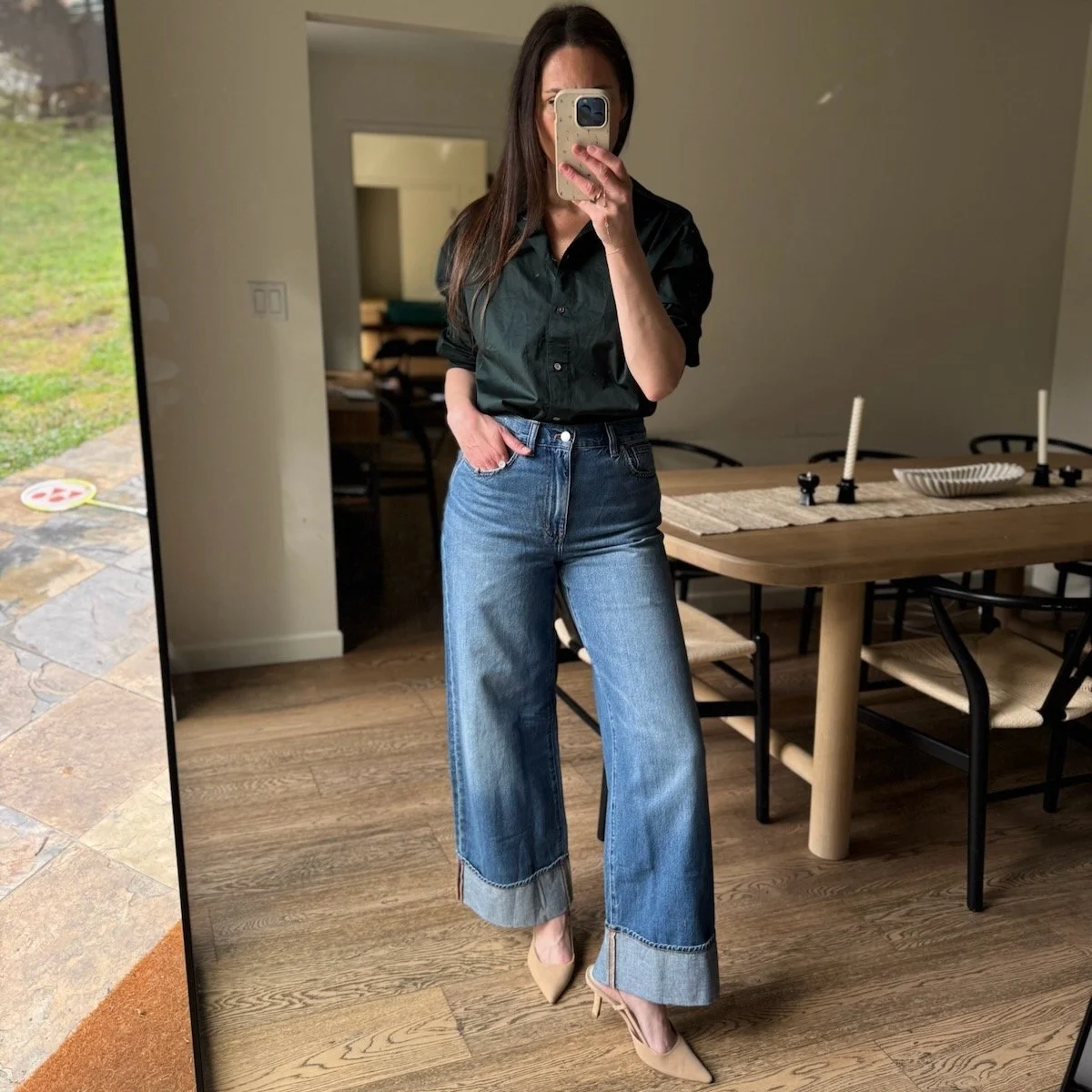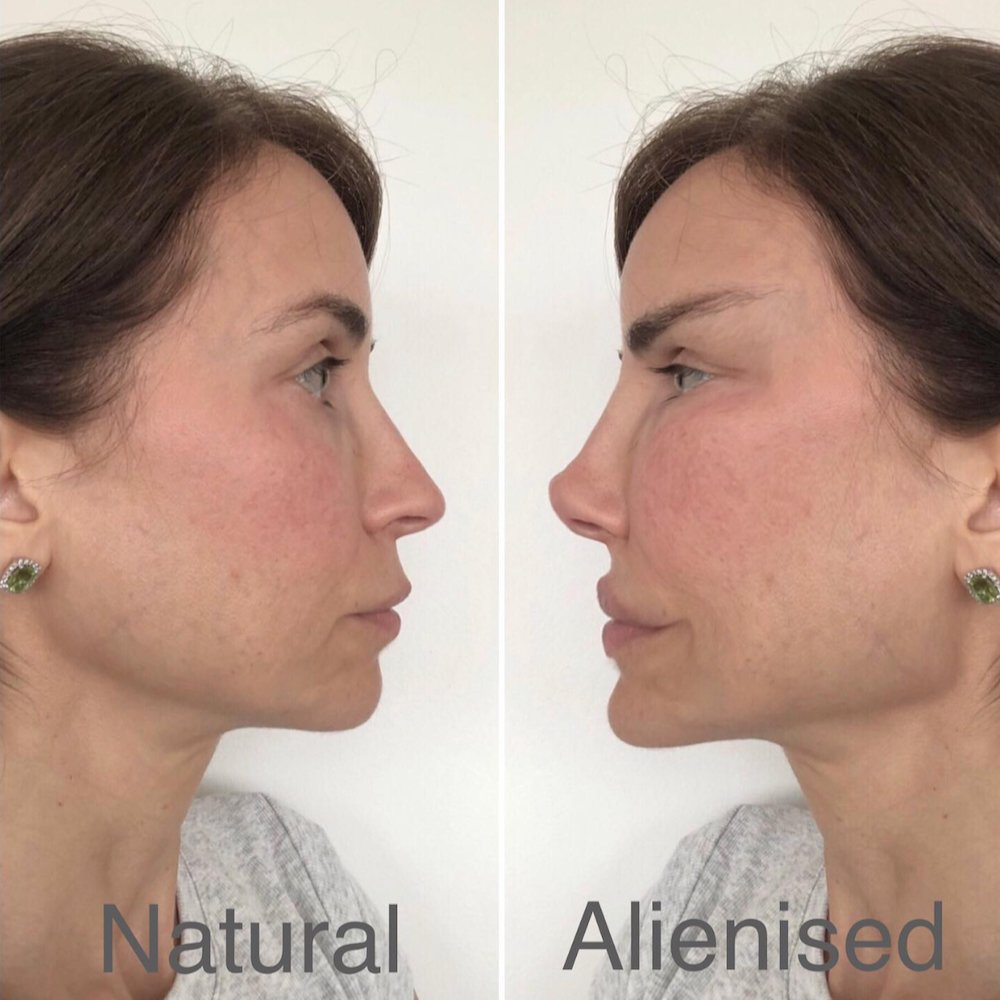Is Filler Making All Of Us Look The Same?
by Jacinta Kuznetsov
It only takes a mid-morning brunch with our girlfriends to find the right doctor or aesthetic nurse who will get all our creases ironed out. We all know somebody who’s gotten their forehead frozen, their lips puffed, their bags erased.
Maybe it’s even you.
But the questions that arise about us getting these procedures often have nothing to do with whether we should or shouldn’t get them. We can do whatever we want. Obviously.
And yet, why we make our choices is…murkier. Most of us are modern women who ascribe to, at least, this most basic tenet of feminism; we believe in equality between the sexes. So how do our feminist values justify injecting our faces with substances to fit societal standards of beauty?
At what point, if any, are we crossing a vague, fluid, watercolor grey line, into a quiet world where our desire to look young and beautiful becomes insidious? Where we softly tuck away the glaring reality of needles and acids and toxins and bone reshaping? Where we aspire to new plateaus or rather, peaks of chiseled cheekbones and descend into some watered down generic perfection of manufactured unattainability?
In our seemingly insatiable quest, is there harm in the greater collective of femaleness as we look at the faces on the explore page of instagram and many of them, many of us, begin to all look…the same?
Being a woman is kind of like living inside of a puzzle we never fully know how to solve. Being too feminine is annoying. Being too masculine is off-putting. Like building an intricate cocktail, it’s a skilled mastery to have the perfect, palatable proportions, and yet it’s nearly impossible to define exactly what that is.
“like building an intricate cocktail, it’s a skilled mastery to have the perfect proportions, yet it’s impossible to define them.”
We start with bold, high cheeks. Lifted, perfectly arched brows. Puckered, bouncy lips. A thin chin, of course. A patrician nose. Glowing, lit-from-within skin. Taut. Everything so taut.
Our ability to change or delay our inevitable biology is as easy as a google search, a few hours of "low or mild discomfort at the area of entry," and a few hundred dollars.
To fully understand the paradoxical nature of our choices— of how we can passionately demand equal pay while simultaneously shopping for a new face on Instagram— we need to crack open the nut of our unconscious biases and beliefs, our freedoms, and our concept of self. Am I subscribing to some patriarchal lie if I want to get rid of the 11 that sits between my brows? Am I contributing to internalized misogyny if I fill in my frown folds? How much do social media and magazines and movies and celebrities contribute to how I see myself?
All of this is a dizzying maze that only leads to more questions and contradictions.
The last few years have seen feminist issues like #MeToo get pushed to the forefront of media and politics while simultaneously, cosmetics and plastic surgery are more popular than ever. According to Statista, the cosmetics industry in the US is valued at over 80 billion dollars, with a worldwide value of over $420 billion. The American Society of Plastic Surgeons states that in 2018, there were over 7.4 million botox procedures performed in the United States.
All this to say—even though identifying as a “feminist” has become mainstream and widely accepted, even lauded, we still care, perhaps more than ever, about how we look.
In London, Dr. Sabrina Shah-Desai, MS, FRCS, ED (OPHTH), has seen a surge in new clients, explaining, “the most popular treatments right now are botox, upper lid blepharoplasty and jawline treatments. I have seen a huge increase in demand for upper lid blepharoplasty for hooded upper lids and silhouette soft thread lifts for treating heavy jowls.”
Image: Sex And The City | HBO
And though this pandemic has trapped us inside our homes and made even a haircut seem risky, Dr. Shah-Desai believes this unique time in history is heavily influencing people's aesthetic choices. “Many people tell me they hate seeing their ‘tired’ faces on zoom calls. They have also saved up more money as their holiday plans have got shelved so are now investing in themselves. Some are calling it the Zoom Boom.” She’s also seeing cases where people are self- administering fillers. *hot tip* Do not do that.
Tracy Hudson, a licensed aesthetician with a skincare line of the same name, has seen a shift take place in the onslaught of demand from new clients. But not all of those shifts are bad. In fact, she says, “self care, in my opinion, is at an all time high. From meditation, crystal, prayer — people are at home. They’re isolated. They’re realizing that they’ve neglected themselves inside and out, so those who have the means are calling me. They want to feel good about themselves.”
But still, this decision to look a little (or a lot) tighter isn’t usually spontaneous. According to The National Centre for Biotechnology, “standards of attractiveness are learned by exposure to culturally imposed ideals. These ideals create immense pressure to conform to prevailing beauty standards and consequently have engendered insecurities via their influence on perception of self and body image.”
“left to our own devices, we wouldn’t choose to do this, would we? Any more than we’d get rid of body hair or colour greys, or get our teeth fixed.”
Our decisions around plastic surgery begin subconsciously as we navigate the media landscape of headlines stating Jennifer Lopez is fierce at fifty and that girl you follow on instagram who suddenly has impossibly symmetrical selfies. And for the record, there is no fiercer a 50 year old than J. Lo and I would happily gobble down whatever elixir she takes.
And, look! We can look like J Lo. Because we have instagram. And Facetune. And 437 filters. Our skin is made poreless, our faces interchangeable with a different face. A better face. Filters show us what we can look like with carved out cheekbones, widened eyes, jawlines softened into to a subtle swoop instead of a squared off axis.
But what does this easy access to “perfection” do to our minds?
It shows us how easily we can manipulate our own reality, how easily we can make our eyebrows more lifted and the same shape for once in our lives.
“is there any feminist empowerment in my having Botox or fillers? No. It makes me feel great, but not because ‘it’s my choice.’”
To understand this phenomenon, I spoke with Polly Vernon, a journalist and author of the book “Hot Feminist,” who starts our conversation about feminism and filler with a sentiment I’ve been feeling for awhile. “Ouf, bloody hell... where do we even start?”
As someone who has swam through the scrutiny of nuances associated with the rungs of feminism and beauty, I ask her if she believes we can cross a detrimental line should we pursue the plumped-up route ourselves.
“Basically, any overwhelming concern with your looks is unhelpful. It distracts you from the business of living. And the compulsion and expense and pain of having chemical compounds pumped into your face, is certainly that. I say all this as a woman who has Botox and fillers as well as other things, and loves doing all that... and as a woman who judges no one for doing the same. But the fact is, left to our own devices, we wouldn’t choose to do this, would we? Any more than we’d get rid of body hair or colour greys, or get our teeth fixed.”
But are we ever crossing a line into anti-feminism?
“No. I think women are over-encouraged to think about our looks and despair ourselves for aging, but I think men are increasingly feeling the same,” she says. “It’s an expression of self loathing that used to be uniquely female, uniquely tied to our lack of status and all our self worth being rooted in the men we could entice, but in the age of social media, boys and men are feeling it, too. I believe true feminism lies in the ways we change the laws to the benefit of women, not in how we obsess about or assert our own faces/ bodies. Does it matter that, while I campaign for abortion rights, I have Botox in my frown lines? No it does not. Does one of these things — abortion access— matter more than the other — Botox? Yes.”
But, she adds this important caveat— “is there any feminist empowerment in my having Botox or fillers? No. It makes me feel great, but not because ‘it’s my choice.’ It makes me feel great because it makes my forehead look smoother and society tells me that’s preferable to natural aging. There’s not much choice in that.”
I asked about the way we are bombarded with images of “perfection” that aren’t outlined with disclaimers that they’ve had twelve procedures to look a certain way. “I think it is deeply suspect to not admit to the things you have done. I can’t stand the culture of denying it, people in the public eye who claim their wrinkle-free foreheads and plump lips are all gua sha and veganism. That doesn’t just make you a bad feminist. That makes you a bad person. So I’m very open about what I have done. People who despair of me for doing it, can piss off. I read a tweet from someone once which went ‘every time a feminist dyes her hair, a part of me dies.’ I thought: bad news, love. I’ve killed you off.”
“agency over our bodies has been a battle waged in doctors offices to senate floors but sometimes it feels like it’s being waged on the frontlines of Instagram.”
And yet allll of that comes back to this— my freedom to choose how I look is arguably, both a personal and a political one.
Agency over our bodies has been a battle waged in doctors offices to senate floors but sometimes it feels like it’s being waged on the frontlines of Instagram, Twitter and TikTok. If there are any visible signs of beauty enhancements, the comment sections are commonly riddled with opposing takes, drawing lines in the sand of what’s acceptable and what’s too much.
We love to revel in Jennifer Aniston’s je ne sais quoi and in the same breath scrutinize Courtney Cox’s self-professed regrets of way too many fillers. We love to applaud the gracefulness of aging beauty when it fits within our lines of what we’ve deemed acceptable and we love to condemn those that dare overstep.
It’s a great balancing act of female-dom and it’s one that should be veering towards honesty and candidness. If we need to veil it in humor, if we need to say it bluntly, the key is to just get it out there. Joan Rivers had a candor that broke the illusion into clever quips, my favorite being “I’ve had so much plastic surgery that when I die they’ll donate my body to Tupperware.”
Our expectations are high and you’d be hard pressed to build a case otherwise. We are to be beautiful, we are to be fit, we are to be young. We want to see our TV characters be a size 2, scoff down a pizza and throw back a beer. We adore a good illusion. No, we are obsessed with a good illusion.
And that’s important— that we know that it’s an illusion, and we still try to make it our reality.
But if our decisions are based on impossible, elusive standards of beauty that we’ve absorbed from media and social media and TV, then how can we claim these decisions as our own? As non-political? As unrelated to feminism, when in fact these internalized expectations are nearly impossible to tease apart from decades-worth of feminist thought?
Second wave feminism in the 60’s coined the slogan, “The personal is political,” which encouraged women to examine the way their lives reflected sexist power dynamics. Betty Friedan’s famous feminist manifesto, The Feminine Mystique, hypothesized that women are victims of false societal beliefs requiring them to find identity in their lives through husbands and children, which causes women to lose their own identities. In 1990, Naomi Wolf’s book, The Beauty Myth, argues that the pursuit of beauty has hindered feminism, explaining that women are groomed to pursue the next makeup line instead of equal pay for equal work (we earn 72 cents for every dollar earned by a man, if you need to be reminded). Wolf argues that our patriarchal and sexist cultural steerings make it so our ambitions for beauty far outweigh our striving for anything else.
The fourth wave of feminism, considered to have begun in 2012, is focused on sexual harassment, body shaming and rape culture.
“we love to applaud the gracefulness of aging beauty when it fits within our lines we’ve deemed acceptable and we love to condemn those that dare overstep.”
Today, feminism feels confusing. Four waves of feminism have left us with conflicting messages, all of which are up for personal interpretation. The intersectional layers are endless for discussion.
But still, I am of the firm belief that no matter what could possibly be debated regarding feminism, it should be rooted in the basic foundation that women are equal to men, we should be granted the same rights and opportunities and have complete agency over our bodies. So if I believe that my right is to have complete agency over my body, how much of that agency is unconsciously tainted by a pursuit that I should want to be beautiful now and forever?
How much of it is steeped in my own leanings to look good for myself, to feel confident and comfortable in my own skin, whether it be propped up with filler or not? Those are the nuances of filler, botox and sculpting beauty. There isn’t a one size fits all answer to what we should do or shouldn’t do. But to question it all is important. Talking about it allows the mystique to fade, the curtains to be drawn back and the truth of our actions to be celebrated, not revealed quietly through the whispers of others.
To pull back the curtains and have open and honest conversations seems to be where the margins of feminism exist. We don’t owe anyone anything but we owe it to each other to at least be honest.
Maybe, filler isn’t feminist. Maybe it’s just another manifestation of an internalized standard of beauty that, no matter how much we try, just can’t be disentangled from how we value women.
But after decades of dealing with endless, patriarchal bullshit, don’t we deserve to feel good about ourselves? I mean, where do we think these lines came from? They came from years of suffering through belittling and dismissiveness and sexual harassment and unequal pay.
So maybe we can still identify as feminists and believe in equality and fight for access to better pay and intersectionality and birth control and abortion, and still get filler and be imperfect feminists and that’s enough.
Because don’t we have an equal right to be flawed, too?










